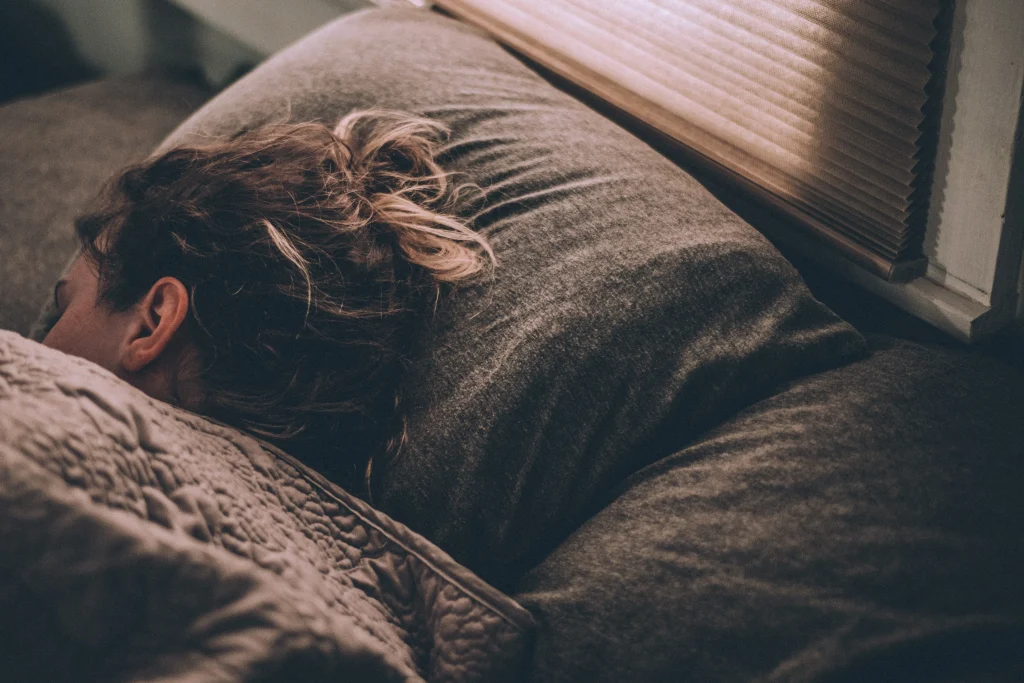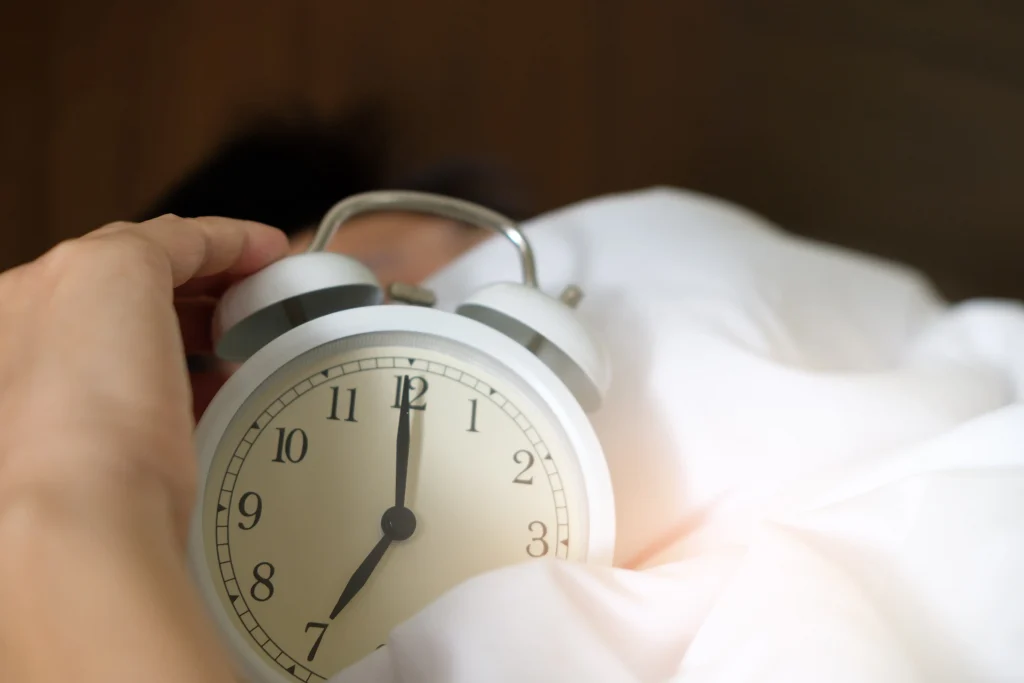A good night’s sleep is essential for overall health and well-being. It helps to rejuvenate the body and mind, improve mood and cognitive function, boost the immune system, and regulate hormones. A typical adult should aim for 7-9 hours of sleep per night, although the amount of sleep an individual need may vary. It is important to establish a consistent sleep schedule, create a sleep-conducive environment, and engage in habits that promote relaxation before bed, such as reading, meditating, or listening to soothing music. It’s also important to avoid things that can disrupt sleep, such as caffeine, heavy meals, and electronic devices before bedtime.
Sleep is one of the most important aspects of healthy living. Most people don’t get enough sleep and suffer the consequences, which can include weight gain, moodiness, memory problems and difficulty focusing. It helps your body heal and your mind relax, so it’s important to make sleep a priority in your life. But how much is enough? The National Sleep Foundation recommends that adults get seven to nine hours of sleep each night. You may need less or more depending on your age and other factors like stress level and health conditions. Here are some tips to improve your sleep routine.
1. Consistent Schedule
Establishing a consistent sleep schedule means going to bed and waking up at the same time every day, including weekends. This helps to regulate the body’s internal clock, also known as the circadian rhythm, which controls the sleep-wake cycle. By setting a consistent schedule, you are training your body to recognize when it is time to sleep and wake up, making it easier to fall asleep and wake up at the desired times. A consistent sleeping schedule also helps to improve the quality of sleep. It is important to be consistent with the sleep schedule as much as possible, even on weekends, to avoid the “Sunday night insomnia” or “social jet lag” that can occur when you change your sleep schedule on weekends.
Additionally, setting a bedtime routine can also help to prepare the mind and body for sleeping. This can include activities such as reading, meditating, taking a warm bath, or listening to soothing music. The routine should be the same every night, which will signal to the body that it is time to wind down and prepare for sleep.
2. Sleep Conducive Environment
Creating a sleep-conducive environment means making your bedroom as comfortable and conducive to sleep as possible. This includes keeping the bedroom dark, quiet, and cool.
Darkness is important for the production of melatonin, a hormone that regulates the sleep-wake cycle. Exposure to light, especially the blue light emitted by electronic devices, can inhibit melatonin production and make it more difficult to fall asleep. Therefore, it is recommended to keep the bedroom dark by using heavy curtains or an eye mask, and avoid using electronic devices for at least an hour before bed.
Noise can also disrupt sleep, making it difficult to fall asleep and stay asleep. Therefore, it is important to keep the bedroom as quiet as possible. You can use earplugs or a white noise machine to block out any external noise.
A cool room can also help to promote healthy sleeping. The ideal room temperature for sleep is between 60-67°F (15-20°C). Being too hot or too cold can make it difficult to fall asleep and stay asleep. Therefore, it is important to keep the bedroom cool by using a fan or air conditioning, and to have a comfortable bedding that is appropriate for the room’s temperature.
Additionally, keeping the bedroom clean and clutter-free can also help create a peaceful and relaxing environment. By creating a sleep-conducive environment, you are setting the stage for a good night’s sleep and making it easier for your body to relax and fall asleep.

3. Meals to Avoid Before Bedtime
Caffeine is a stimulant that can interfere with the ability to fall asleep and stay asleep. It’s found in many common beverages and foods such as coffee, tea, chocolate, and some medications. It’s important to avoid caffeine at least 4-6 hours before bedtime. Consuming caffeine too close to bedtime can make it harder to fall asleep and can disrupt sleep during the night.
Heavy meals close to bedtime can also disrupt sleep. Eating a large meal can cause discomfort, indigestion and can make it harder to fall asleep. It’s recommended to finish your last meal of the day at least 2-3 hours before bedtime. Eating a light snack that contains some carbohydrates, such as a banana or a small bowl of cereal, can help you fall asleep faster.
It’s also important to stay well hydrated during the day, but avoid drinking too much fluids close to bedtime, as this can cause you to wake up needing to use the bathroom during the night. By avoiding caffeine and heavy meals before bedtime, you’re helping to create the right environment for a good night’s sleep and giving your body the best chance to relax and fall asleep.
4. Relaxing your Mind and Body
Relaxing the mind and body before bed is important for preparing for sleep. There are several ways to do this, such as reading, meditating, or listening to soothing music. Reading can be a great way to relax the mind and body before bed. It’s a good idea to choose a book that is not too stimulating, such as a fiction or non-fiction book that you find interesting but not overly engaging. Reading can help to distract the mind from the day’s stressors and allow the mind to relax.
Meditation can also be a useful tool for relaxing the mind and body before bed. It can involve deep breathing exercises, visualization, or guided imagery. It can help to quiet the mind and reduce stress. Listening to soothing music can also be a great way to relax the mind and body before bed. It can be any kind of music that you find calming, such as classical music, nature sounds, or ambient music. Listening to soothing music can help to slow down the heart rate, lower blood pressure, and reduce stress.
By engaging in these activities before bed, you’re helping to prepare your mind and body for sleep, and making it easier to fall asleep and stay asleep. It’s also important to find activities that work best for you, as different people have different preferences. Experiment and find the activities that help you to relax the most, and make them a regular part of your bedtime routine.
5. Avoiding Screen Time
Exposure to the blue light emitted by electronic devices, such as smartphones, tablets, and computers, can interfere with melatonin production, a hormone that regulates the sleep-wake cycle. Melatonin helps to signal to the body that it is time to sleep. When exposed to blue light, the brain is tricked into thinking it is still daytime, and melatonin production is suppressed, making it harder to fall asleep.
It is recommended to avoid screens for at least an hour before bedtime, to give your body time to adjust to the dark and signal to the brain that it is time to sleep. If you must use electronic devices before bed, there are several ways to reduce your exposure to blue light, such as: using a blue light filter on your device, using red or orange light bulbs in your bedroom, wearing blue light blocking glasses and using apps that adjust the color temperature of your device
Additionally, you can use this time before bed to engage in other activities that can help you relax, such as reading, meditating, or listening to soothing music. By avoiding screens for at least an hour before bed, you’re helping to create the right environment for a good night’s sleep and giving your body the best chance to relax and fall asleep.

6. Comfortable Pillows and Mattress
Having a comfortable pillow and mattress is crucial for a good night’s sleep. A comfortable pillow and mattress can help to support the body, reduce discomfort and pain, and promote relaxation, allowing the body to fully rest and rejuvenate.
A pillow should provide the right amount of support for the head and neck, which can help to reduce pain and discomfort. It’s important to find a pillow that is the right firmness and thickness for your sleeping position, whether you sleep on your back, stomach, or side.
A mattress should also provide the right amount of support for the body, and should be comfortable to lie on. It should be firm enough to provide adequate support, but not too hard that it causes discomfort. Mattresses come in a variety of materials such as memory foam, innerspring, and latex. It’s important to find the one that is comfortable for you.
It’s also important to replace your pillow and mattress when they become worn or uncomfortable. A general rule of thumb is to replace your mattress every 7-10 years, and pillows every 1-2 years, or when they lose shape or support. By having comfortable pillows and mattresses, you’re giving your body the support it needs to fully rest and rejuvenate, which can lead to a better quality of sleep.
7. Avoid Napping during Day
Napping during the day can interfere with your ability to fall asleep and stay asleep at night. Napping can disrupt the body’s natural sleep-wake cycle and make it harder to fall asleep at night, especially if you nap close to bedtime. Additionally, napping can also affect the quality and duration of nighttime sleep, which can lead to daytime drowsiness and grogginess. It can also cause insomnia, making it even harder to fall asleep and stay asleep at night.
However, napping can be beneficial in certain situations, such as for people who work night shifts or have certain medical conditions that affect their sleep. If you must nap, it’s best to do so in the early afternoon, for no longer than 20-30 minutes, and to avoid napping close to bedtime.
It’s also important to try to maintain a consistent sleep schedule, and avoid staying up late or sleeping in, as these habits can also disrupt the body’s natural sleep-wake cycle. By avoiding napping during the day and maintaining a consistent sleeping schedule, you’re helping to regulate the body’s natural sleep-wake cycle and promoting better sleep at night.

8. Avoid Heavy Exercise
Exercise is beneficial for overall health and well-being, and it can also improve sleep. Regular physical activity can help to regulate the body’s natural sleep-wake cycle, reduce stress and anxiety, and promote relaxation, which can lead to better sleep at night.
It’s recommended to engage in regular moderate-intensity exercise, such as brisk walking, cycling, or swimming, for at least 30 minutes a day, most days of the week. However, vigorous physical activity close to bedtime should be avoided as it can stimulate the body and make it harder to fall asleep. It’s best to finish your workout at least 3-4 hours before bedtime.
It’s also important to note that the timing of exercise can vary depending on the individual, and some people may find that working out earlier in the day works better for them, while others may prefer working out later in the day. Experiment with different times and find what works best for you.
By engaging in regular exercise, but avoiding vigorous physical activity close to bedtime, you’re promoting relaxation and helping to regulate the body’s natural sleep-wake cycle, which can lead to better sleep at night.
9. Limit Alcohol and Tobacco
Alcohol is a sedative and can make it easier to fall asleep, but it can disrupt sleeping during the night, causing awakenings, insomnia, and nightmares. It can also decrease the amount of time spent in deep sleep, which is the stage of sleep when the body rejuvenates and repairs itself. It’s best to avoid alcohol close to bedtime, and limit the overall consumption.
Tobacco is a stimulant that can make it harder to fall asleep and stay asleep. Nicotine, which is the addictive substance in tobacco, can cause insomnia and other sleeping disorders. The smoke and chemicals in tobacco can also irritate the airways and cause coughing and difficulty breathing, making it harder to sleep. Quitting smoking or using nicotine replacement therapy (NRT) can help to improve sleep.
By limiting alcohol and tobacco consumption, you’re promoting better sleep and overall health and well-being. It’s also important to note that if you’re having trouble sleeping, it’s best to consult a healthcare professional for advice and guidance on how to improve your sleep.
10. Contact a Health Care Professional
If you’re still having trouble sleeping despite following healthy sleeping habits, it’s a good idea to consult a healthcare professional. A healthcare professional can help to identify any underlying medical conditions or other factors that may be contributing to your sleep problems. They can also provide guidance on how to improve your sleep and recommend treatment options if necessary.
Some common sleep disorders that a healthcare professional can help diagnose and treat include insomnia, sleep apnea, restless leg syndrome, and narcolepsy. These disorders can cause difficulty falling asleep, staying asleep, or both, and can lead to daytime drowsiness, fatigue, and irritability.
A healthcare professional may also recommend a sleep study, which is a test that monitors your sleep and helps to identify any problems. They may also suggest medication, if needed, to help with insomnia or other sleeping disorders.
Additionally, if you have other underlying medical conditions such as depression, anxiety, or chronic pain, a healthcare professional can help to manage those conditions, which can also help to improve your sleep. By consulting a healthcare professional, you’re taking an important step towards getting the help you need to improve your sleep and overall health and well-being.